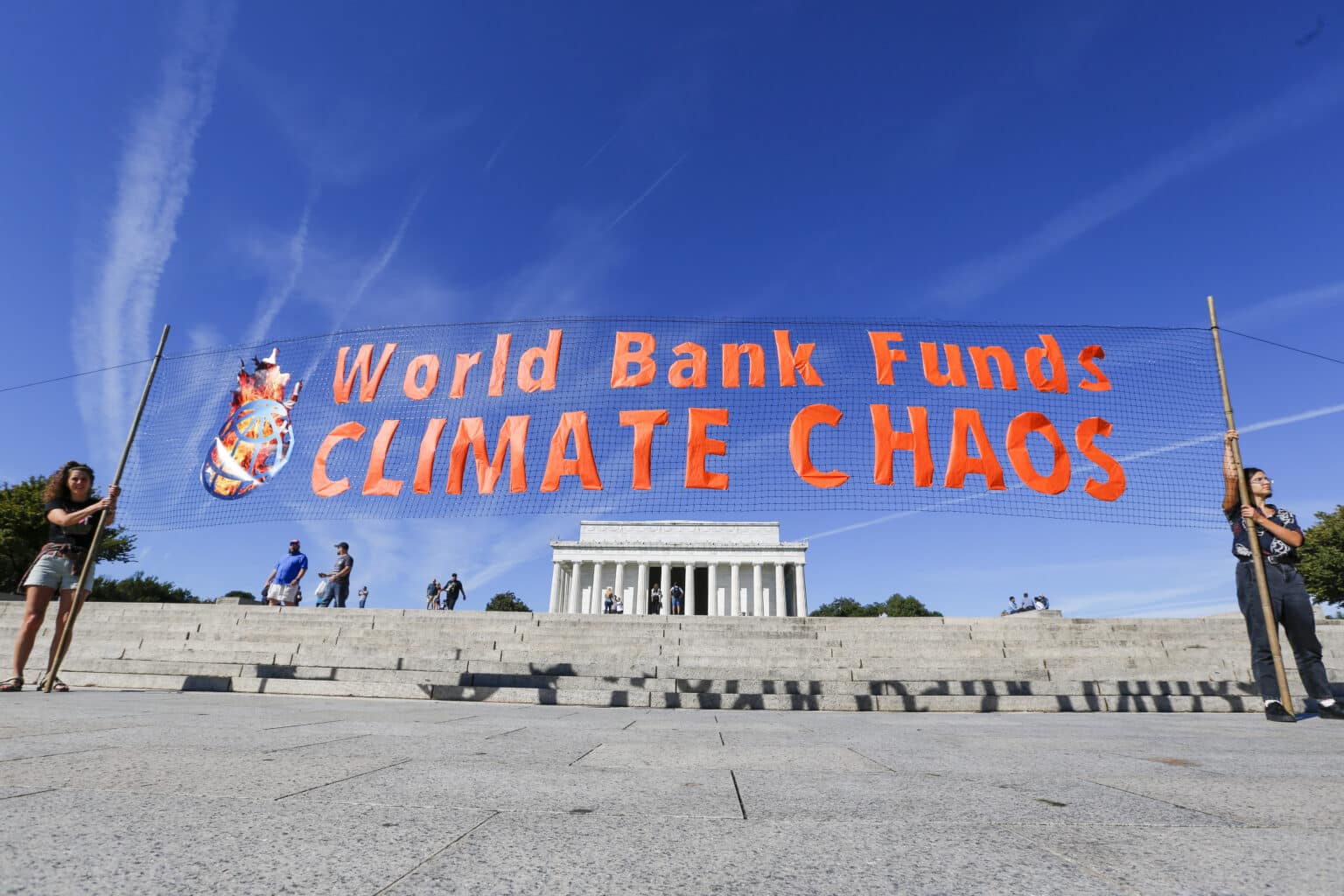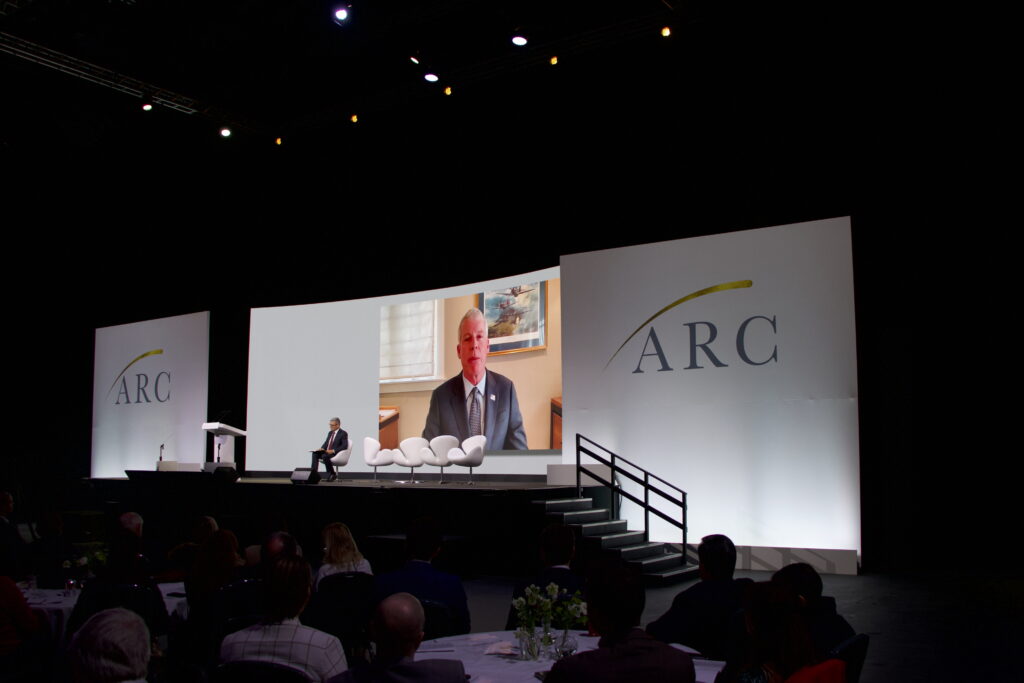The World Bank Group has funneled $14.8 billion into fossil fuel projects around the world since the Paris Climate Agreement was signed in 2015, undercutting global efforts to combat the worsening climate crisis. That money has helped build gas pipelines, refineries, liquefied natural gas import terminals and gas-fired power plants, according to a new report from the Big Shift Global, a coalition of NGOs from both the Global North and Global South.
The report analyzed the financial flows from the World Bank in recent years, and identified the top 10 fossil fuel projects moving forward with the help of the development bank. In the list’s number-one spot is the Trans-Anatolian Pipeline (TANAP), a long-distance gas pipeline that runs from Azerbaijan through Turkey, moving gas from the Shah Deniz field in the Caspian Sea throughout southern Europe.
The Multilateral Investment Guarantee Agency (MIGA), a member of the World Bank Group, gave the project $1.1 billion in loan guarantees to protect investors in 2018, helping to push TANAP forward, a move that will triple Azerbaijan’s gas exports, according to the report. The loan guarantee protects a long list of banks — AKA Bank, Citi, Credit Agricole CIB, ING, LBBW, Santander, and Societe Generale — for 15 years.
Another example is the $288 million loan issued in 2019 by the International Finance Corporation (IFC), which is another entity within the World Bank Group, for a gas-fired power plant and LNG import terminal at the Port of Açu, Brazil.
“The Bank is trying to reposition itself as a climate champion investor. But the actions are not matching the words,” Kyle Ash, policy director at the Bank Information Center, told DeSmog. The Bank Information Center is a member of the Big Shift Global and contributed to the report.
The World Bank’s mission is to end extreme poverty and promote broad prosperity in developing countries. It does so by offering a variety of financial and technical tools and programs, such as loans and investment guarantees. Last year, the World Bank offered up its climate action plan for the five-year period through 2025, and announced that it would make 35 percent of its total financing “climate finance.”
But “it’s just not very clear” what that means, Ash said. The World Bank gave no sectoral targets that would offer clearer guardrails on financing in the energy sector, for example. And while direct loans for infrastructure projects typically garner the most attention, the World Bank omitted from its climate plan the financial support it offers for policy or governance — so-called “development policy finance” — that can clear the way for more fossil fuel investments.
For instance, in 2018 and 2019 the World Bank offered Guyana a total of $55 million to help the government put in place legal and institutional frameworks for the oil and gas sector. That ultimately meant smoothing the path for ExxonMobil, Hess, and China’s Cnooc to ramp up offshore oil production, the Big Shift Global report notes. Indeed, Exxon is spending billions of dollars to aggressively grow oil production in the South American nation. Exxon and its partners produced 360,000 barrels of oil equivalent per day (boe/d) as of July, and aim to dramatically scale that up to 1.2 million boe/d by 2027.
Yet another example is the $135 million loan to Pan American Energy in 2019, an oil company partly owned by BP, to expand an oil refinery outside of Buenos Aires, Argentina. IFC trumpeted the transaction, arguing that it would help Pan American produce “cleaner fuels,” which meant diesel with a lower sulfur content. The refinery takes oil from Argentina’s south, as well as from Pan American’s shale gas wells in the Vaca Muerta.
As DeSmog has previously reported, the Vaca Muerta is home to environmental disasters, including rampant flaring and mishandled fracking waste, and the entire venture is riddled with financial risk and ultimately dependent on generous subsidies from the government.
The Big Shift Global report called on the World Bank to definitively rule out support, both direct and indirect, for fossil fuel projects, which it has yet to do. Instead, the Bank should scale up support for renewable energy while also implementing environmental, social, and governance safeguards, including the consent of local communities, the report argued.
In a statement to DeSmog, a World Bank spokesperson disputed the report’s findings, saying it makes “inaccurate assumptions” about the Bank’s lending. But the spokesperson didn’t offer any further details, and instead pointed to a fact sheet that highlighted some of the Bank’s climate investments.
“In fiscal year 2022, the Bank Group delivered a record $31.7 billion for climate-related investments, to help communities around the world respond to the climate crisis, and build a safer and cleaner future,” the spokesperson said.
The fact sheet stated: “In fiscal year 2021, the World Bank (IBRD/IDA) did zero new fossil fuel financing. The World Bank Group stopped investing in upstream oil and gas in 2019.”
But that statement elides ongoing finance for existing fossil fuel projects, Ash said, pointing to a gas storage facility in Turkey to which the International Bank for Reconstruction and Development (another World Bank Group entity) is loaning $600 million for an expansion. The IBRD will disburse money for the project through October 2024.
The “no new fossil fuel financing” assurances from the spokesperson also omits the “development policy finance,” or support for policy or institutional changes that facilitate fossil fuel projects.
“I think they are trying to choose their words carefully,” Ash said in a follow-up email to DeSmog, referring to the World Bank spokesperson’s statement.
On the same day as the report’s release, U.S. Treasury Secretary Janet Yellen called on the World Bank Group and other multilateral development banks to overhaul their financing approaches to global problems such as climate change, referring to it as “an existential threat to our planet.” She also promised to engage more deeply with the Bank in the coming months to make these changes happen.
In a separate report, a group of NGOs blasted the World Bank for saddling Vietnam with new LNG infrastructure. “The World Bank and its private sector arm, the International Finance Corporation (IFC), are continuing to massively support fossil gas and liquefied natural gas (LNG) build out in Vietnam,” stated the report, published by Recourse, Friends of the Earth U.S., and Asian Peoples Movement for Debt and Development. “Not only is it locking Vietnam into an energy system with high carbon greenhouse gas emissions and toxic pollution but is also diverting vitally needed public funding away from the sustainable renewable alternatives that are urgently needed.”
Meanwhile, the World Bank’s President, David Malpass, was under fire in late September when he dodged repeated questions about whether or not he believed in climate change, instead stating “I don’t even know. I am not a scientist.”
That led to calls for his ouster.
“The World Bank Group still funds more fossil fuels than any other [multilateral development bank], and they continue to lock Global South countries into expensive and volatile fossil fuel contracts through their heavy-handed policy lending programs,” Bronwen Tucker, co-manager of Oil Change International’s global public finance campaign, said in a September 21 statement. “Now we know why. With Malpass at the top, the World Bank Group cannot be trusted as a partner in sustainable development.”
Subscribe to our newsletter
Stay up to date with DeSmog news and alerts







